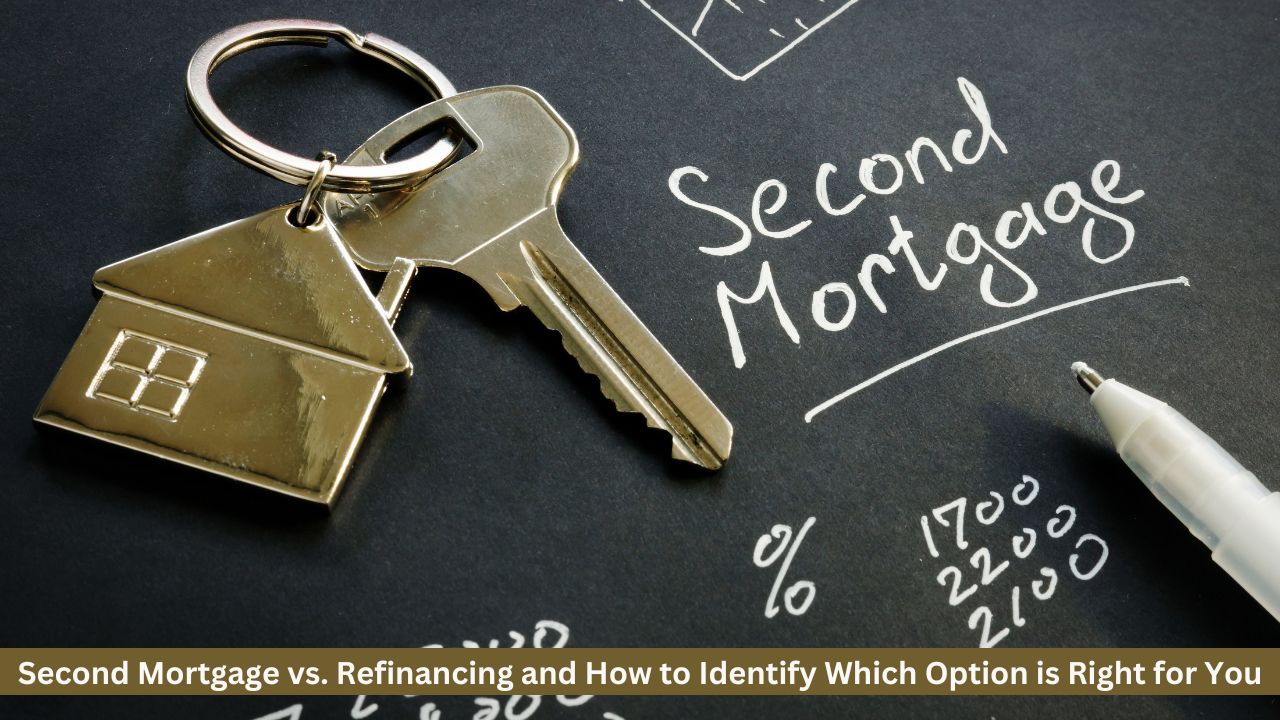Second Mortgage vs. Refinancing and How to Identify Which Option is Right for You
 When homeowners need access to funds or want to optimize their mortgage terms, they often face a critical decision: Should I get a second mortgage or refinance? Both options have unique advantages and considerations, making it essential to evaluate your financial situation and long-term goals before choosing the best path.
When homeowners need access to funds or want to optimize their mortgage terms, they often face a critical decision: Should I get a second mortgage or refinance? Both options have unique advantages and considerations, making it essential to evaluate your financial situation and long-term goals before choosing the best path.
Understanding a Second Mortgage
A second mortgage is a loan that allows homeowners to borrow against their home equity while keeping their original mortgage intact. There are two main types of second mortgages:
-
Home Equity Loan: A lump sum loan with a fixed interest rate and set repayment schedule.
-
Home Equity Line of Credit (HELOC): A revolving credit line with a variable interest rate, similar to a credit card.
Pros of a Second Mortgage:
-
Access to a large sum of money for home improvements, debt consolidation, or other expenses.
-
Fixed rates (in the case of home equity loans) provide predictable payments.
-
Does not affect the interest rate or terms of your existing mortgage.
Cons of a Second Mortgage:
-
Higher interest rates compared to first mortgages.
-
Additional monthly payment, increasing overall debt burden.
-
Risk of foreclosure if payments are not met.
Understanding Refinancing
Refinancing replaces your existing mortgage with a new one, often with better terms. Homeowners refinance for various reasons, such as lowering interest rates, extending the loan term, or switching from an adjustable-rate to a fixed-rate mortgage.
Pros of Refinancing:
-
Potentially lower interest rates, reducing monthly payments and long-term interest costs.
-
Opportunity to access home equity through a cash-out refinance.
-
Simplifies finances by consolidating debts into a single payment.
Cons of Refinancing:
-
Closing costs and fees can be expensive.
-
Extending the loan term may result in paying more interest over time.
-
Qualification depends on credit score, home equity, and current market rates.
Which Option is Right for You?
Consider a Second Mortgage If:
-
You need a lump sum or flexible credit line for a major expense.
-
You have a low-interest primary mortgage and don’t want to lose that rate.
-
You can handle an additional monthly payment responsibly.
Consider Refinancing If:
-
You want to lower your monthly payments or interest rate.
-
You prefer a single loan instead of juggling multiple mortgage payments.
-
You have significant home equity and need cash for large expenses.
Both options can be beneficial, depending on your financial goals and current mortgage terms. Before making a decision, carefully evaluate your needs, research loan terms, and consult with a qualified mortgage professional to determine the best strategy for your situation.
Categories
- Around The Home
- Awards
- Bankruptcy History
- Budget
- Chapter 7 Bankruptcy
- Construction Loan
- Credit
- Credit Scoring
- Environmental Awareness
- Escrow Tips
- Fair Housing
- Federal Reserve
- FHFA
- Financial Crisis
- Financial Fraud
- Financial Reports
- Foreclosure
- Holiday Tips
- Holidays
- Home Building Tips
- Home Buyer Tips
- Home Buying Tips
- Home Care
- Home Care Tips
- Home Decorating
- Home Financing Tips
- Home Maintenance
- Home Mortgage
- Home Mortgage
- Home Mortgage Tips
- Home Mortgages
- Home Seller Tips
- Home Selling Tips
- Home Tips
- Home Values
- Home Values
- Homebuyer Tips
- Homeowner Tips
- Housing Analysis
- Housing Market
- Investment Properties
- Market Outlook
- Mortagage Tips
- Mortgage
- Mortgage Application
- Mortgage Guidelines
- Mortgage Rates
- Mortgage Tips
- mortgage-rates-whats-ahead-september-17-2012
- Organization Tips
- Personal Development
- Personal Finance
- Rankings
- Real Estate
- Real Estate Definitions
- Real Estate Tips
- Real Estate Trends
- Selling Your Home
- Student Loans
- Tax Debts
- Taxes
- The Economy
- Travel
- Uncategorized